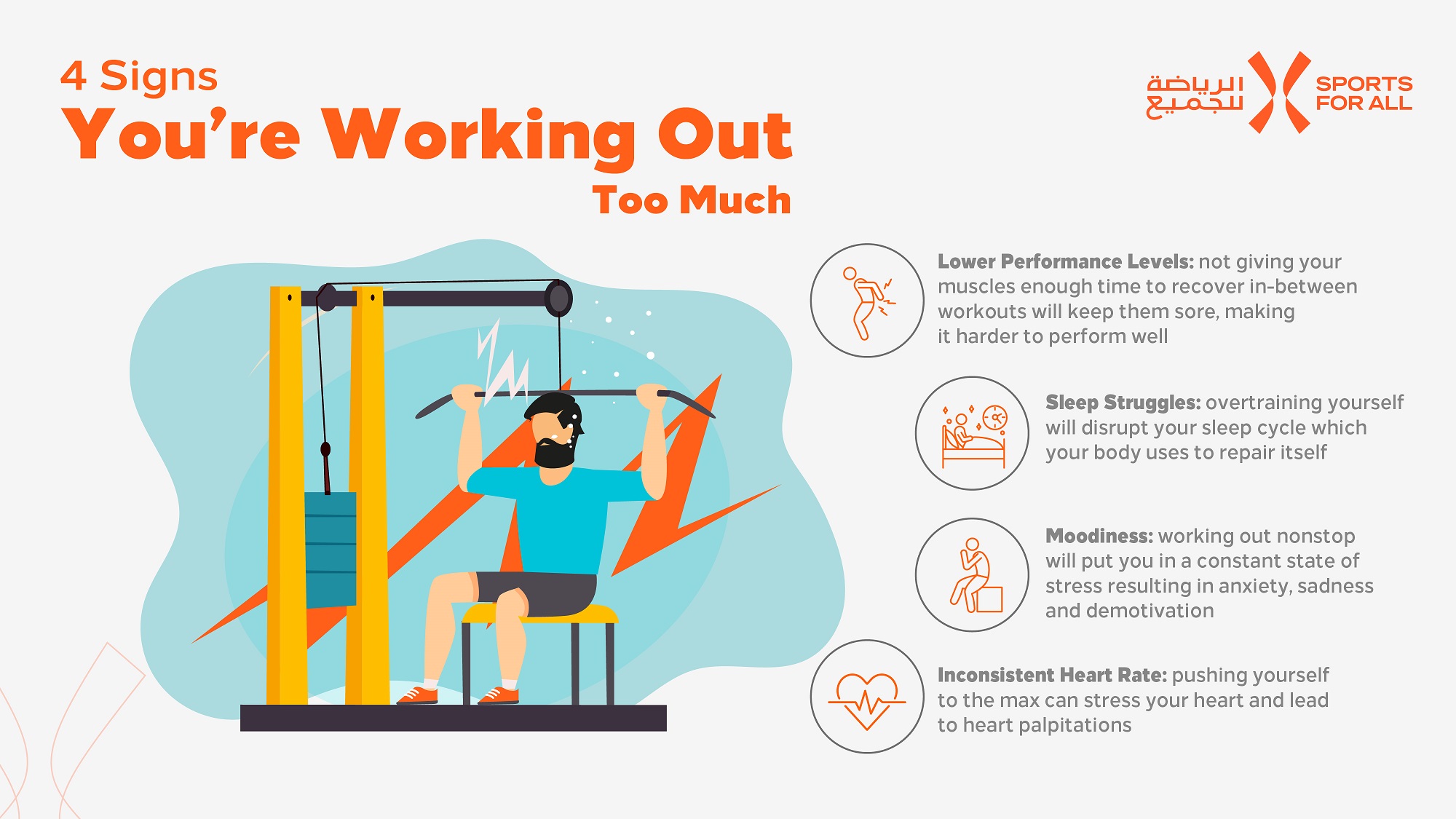How to tell if you are going overboard with your physical activity routine
You’ve overhauled your eating plan and consistently hit the gym regularly for weeks and are starting to see tangible results of all your efforts. Your wardrobe now boasts a solid percentage of active wear and you’ve got the hang of tracking your steps, your heart rate and your meal plans. This is who you are now – you’re into fitness! Before you know it, you’re looking at ways to increase your workouts and their intensity so see just what you’re made of.
Then it happens, you get a cold that you just can’t seem to shake. Your muscles just don’t quite seem to recover the way they used to. You’re not quite smashing out those reps like before. Your mood might be a bit off. As it turns out, like everything else in life, when it comes to working out you can have too much of a good thing. Over-training by increasing your trips to the gym or squeezing in an extra workout each day could actually undo all the weeks of hard work you’ve out in, having serious impact on your body and your brain.

Lower performance levels
One of the first signs that you’re overdoing it is lower levels of performance. During exercise your muscles break down and then repair during the rest period. But if you’re not getting enough rest to let your body do this, you’re basically going to get weaker and your muscles will remain sore for longer, not the usual day or two after a workout.
Sleep struggles
In a cruel twist of irony, over-training can make sleep difficult to come by – the one thing you desperately need to recover. It’s important to prioritize getting regular, good-quality sleep. Over-training and not resting properly offer the double whammy of mood swings, bringing us to our next point.
Moodiness
That feel-good mood that made you feel like you could take on the world suddenly gets wiped out by cortisol because by over-training, you’re basically putting your body in a constant state of stress. This can demolish your motivation, make you short-tempered, cranky, sad, anxious, and even depressed.
Heart rate inconsistency
Finally, over-training can mess with your heart rate. If you feel like your heart is “pounding” rather than “beating” you could be overdoing it. Usually, you’d be aware of it without using a fitness device on your wrist (or certain smart watches that track heart rates) because your heart is working so hard to meet the needs of your training that your resting heart rate changes.
So, what’s the answer?
If you think you’re dealing with the effects of over-training, go to your healthcare practitioner for a check up to assess where you’re at. Chances are they’ll tell you to take a prescribed amount of time off from exercising to let your body fully recover and slowly reintroduce workouts to your routine. They might even advise working with a trainer to reevaluate your fitness goals and create the best plan to achieve them.
Remember, if you do need to slow down and give your workouts a rethink, all is not lost. It’s a minor setback as your body tries to tell you something isn’t working. Listen to your body, rest when needed, and get back into your routine when you’re ready.
Healthy Living is a frequently updated content section brought to you by the Saudi Sports for All Federation. In the spirit of supporting our #HealthyActiveCommunity, we’re sharing tips around wellness, physical activity and more!













